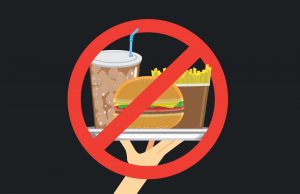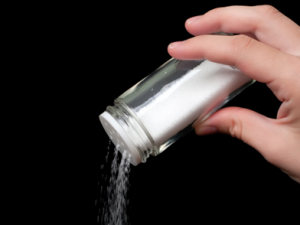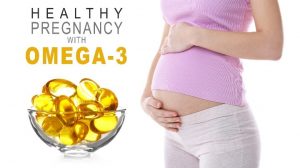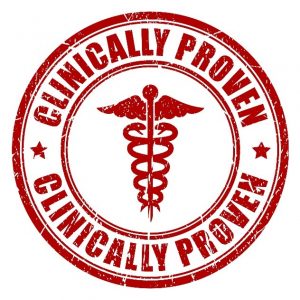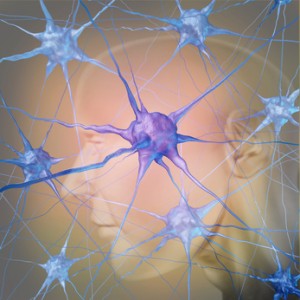What Does This Study Mean For You?
Author: Dr. Stephen Chaney
 Fluoridation of drinking water has always been controversial. On one side you have the dental and medical community who claim that fluoridation is a great public health advance. Their claim is that it strengthens teeth and prevents tooth decay with minimal risk to the public.
Fluoridation of drinking water has always been controversial. On one side you have the dental and medical community who claim that fluoridation is a great public health advance. Their claim is that it strengthens teeth and prevents tooth decay with minimal risk to the public.
- Although my dentist tells me that most of the “benefits” of fluoridation can be achieved with good dental hygiene. Fluoridation is just another example of the American public’s reliance on drugs and chemicals as a “quick fix” rather than taking the personal responsibility to make healthy lifestyle changes.
On the other side you have people who claim that fluoride is toxic at any level. Their claim is that there are many health issues with fluoridation that have been ignored by the dental and medical community. Their claims are that excess fluoride exposure increases the risk of:
- Dental fluorosis (A discoloration of the teeth that is caused by overexposure to fluoride during childhood).
- Bone fractures (Paradoxically, fluoride makes bones and teeth stronger, but it also makes them more fragile).
- Arthritis.
- Some types of cancer.
And in the middle are those who believe that fluoridation has both benefits and risks. They believe we should identify the risks, so we can advise people appropriately.
The study (AJ Main et al, JAMA Network Open, 2024; 7(5):e2411987) I will discuss today falls into this category. It also illustrates the difficulty in doing high-quality research on risks associated with fluoridation, which I will discuss.
How Was This Study Done?
 The data for this study were obtained from the MADRES (Maternal and Developmental Risks from Environmental and Social Stressors) database. The women in this study were predominantly Hispanic women of low socioeconomic status who were recruited from prenatal clinics in Los Angeles serving predominantly medically underserved communities starting in 2015.
The data for this study were obtained from the MADRES (Maternal and Developmental Risks from Environmental and Social Stressors) database. The women in this study were predominantly Hispanic women of low socioeconomic status who were recruited from prenatal clinics in Los Angeles serving predominantly medically underserved communities starting in 2015.
Maternal urinary fluoride (MUF) levels were measured during the third trimester of pregnancy between 2017 and 2020. The average MUF was 0.76 mg/dL, which is similar to the average MUF for women in this country. However, there was a broad range in MUF, so the women in this study were divided into quartiles based on their MUF score.
Their child’s score on the Preschool Behavior Checklist was measured at 36 months between 2020 and 2023. The Preschool Behavior Checklist is a 99-item questionnaire. The questionnaire measures 7 syndromes:
- Emotionally reactive, anxious-depressed, somatic complaints (physical symptoms with no clear cause), withdrawal, sleep problems, attention problems, opposition-defiant problems, and aggressive behavior.
These symptoms are then used to calculate scores for two classes of problems:
- Internalizing problems (anxiety, depression, somatic complaints, withdrawal, sleep problems).
- Externalizing problems (attention problems, oppositional-defiant and aggressive behavior).
The questionnaire was also designed to provide scores for autism spectrum problems and ADHD problems.
Based on previous usage of the Preschool Behavior Checklist each of these scores can be divided into normal, borderline clinical problems, and clinical problems.
Is Fluoride Safe For Pregnant Women?
 When comparing women in the highest Maternal Urinary Fluoride (MUF) quartile in the third trimester to women in the lowest quartile, their children at age 36 months:
When comparing women in the highest Maternal Urinary Fluoride (MUF) quartile in the third trimester to women in the lowest quartile, their children at age 36 months:
- Were 83% more likely to have a combination of internalizing and externalizing behavior problems in the borderline clinical and clinical range.
- Were 84% more likely to have a combination of internalizing and externalizing behavior problems in the clinical range.
- Were 18.5% more likely to have symptoms characteristic of autism spectrum disorder.
- Were 11.3% more likely to have anxiety symptoms.
- Were 19.6% more likely to have somatic complaints (symptoms with no clear cause).
The authors concluded, “These findings suggest that prenatal fluoride exposure may increase risk of neurobehavioral problems among children living in optimally fluoridated areas in the US. These findings suggest there may be a need to establish recommendations for limiting exposure to fluoride during the prenatal period, a time when the developing brain is known to be especially vulnerable to injury from environmental insults.”
What Are The Strengths And Weaknesses Of This Study?
 This is the first study of its kind in the United States. As such it should be regarded as a “proof of principle” study that needs to be confirmed by larger follow-up studies. However, it is fully consistent with two larger studies published in Canada and Mexico.
This is the first study of its kind in the United States. As such it should be regarded as a “proof of principle” study that needs to be confirmed by larger follow-up studies. However, it is fully consistent with two larger studies published in Canada and Mexico.
As a “proof of principle study, it does have some limitations, namely:
- It was performed with a Hispanic population of low socioeconomic status and limited access to healthcare. It needs to be repeated with other population groups to see if it is generalizable to the general population. This is important because, if there is a need to make a recommendation to minimize fluoride intake during pregnancy, we need to know whether that recommendation applies to all women or just to certain high-risk groups.
- It is an association study which does not prove cause and effect. Ideally, it should be followed by placebo-controlled intervention studies to prove cause and effect.
- It is a very small study. Ideally, it should be followed by much larger studies.
However, it is unlikely that either of those follow-up studies will be done. It would cost hundreds of thousands of dollars to conduct large-scale studies – especially if they were placebo-controlled intervention studies. And with the dental and medical community fully convinced fluoridation has no risks, it would be very difficult to get that kind of money.
Even if that money were available, 73% of US communities have fluoridated water. Plus, most bottled beverages in the US are made with fluoridated water. So, it would not be easy to find a suitable control population for a placebo-controlled intervention study.
What Does This Study Mean For You?
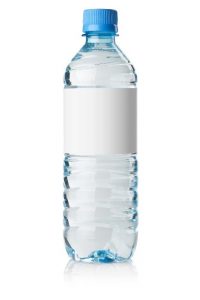 As I shared above, this is a “proof of principle” study. It suggests, but does not prove, fluoride exposure during pregnancy may increase the risk of neurobehavioral issues with your offspring.
As I shared above, this is a “proof of principle” study. It suggests, but does not prove, fluoride exposure during pregnancy may increase the risk of neurobehavioral issues with your offspring.
However, I also realize that if you are pregnant or thinking of becoming pregnant and you spend any time on the internet, you are bombarded with all the things you must avoid if you want to have a healthy baby. I don’t want to add to your anxiety.
So, let’s assume the conclusions of this article might be true. What can you do?
With respect to drinking water, the answer is simple:
- Drink filtered water or bottled water.
-
- Most filtration systems remove fluoride (make sure yours does).
-
- Many bottled waters do not contain fluoride. Read the label to be sure:
-
-
- If it is bottled tap water, it probably contains fluoride.
-
-
-
- If it is spring water, the fluoride would have to be added and would appear on the label.
-
-
-
- If it is filtered or distilled water, it does not contain fluoride.
-
- Since municipal water supplies often contain low levels of other contaminants, this is a good idea even if you aren’t pregnant.
With respect to bottled beverages, the answer is more complex.
- The list of beverages made with fluoridated municipal water is a long one. It includes sodas, energy drinks, teas, fruit juices “made from concentrate”, and much more.
- However, you already know that most of these beverages are bad for you because they contain added sugar and/or a long list of artificial ingredients. Substituting filtered water or fluoride-free bottled water for them is a good idea whether you are pregnant or not.
The Bottom Line
A recent study looked at the correlation between fluoride intake during pregnancy and neurobehavioral issues in the children at 36 months.
When comparing pregnant women with the highest fluoride intake to women with the lowest fluoride intake, their children at age 36 months:
- Were 83% more likely to have behavior problems.
- Were 18.5% more likely to have symptoms characteristic of autism spectrum disorder.
- Were 11.3% more likely to have anxiety symptoms.
- Were 19.6% more likely to have somatic complaints (symptoms with no clear cause).
The authors concluded, “These findings suggest that prenatal fluoride exposure may increase risk of neurobehavioral problems among children living in optimally fluoridated areas in the US. These findings suggest there may be a need to establish recommendations for limiting exposure to fluoride during the prenatal period, a time when the developing brain is known to be especially vulnerable to injury from environmental insults.”
For more details on this study and what it means for you, read the article above.
These statements have not been evaluated by the Food and Drug Administration. This information is not intended to diagnose, treat, cure or prevent any disease.
______________________________________________________________________________
My posts and “Health Tips From the Professor” articles carefully avoid claims about any brand of supplement or manufacturer of supplements. However, I am often asked by representatives of supplement companies if they can share them with their customers.
My answer is, “Yes, as long as you share only the article without any additions or alterations. In particular, you should avoid adding any mention of your company or your company’s products. If you were to do that, you could be making what the FTC and FDA consider a “misleading health claim” that could result in legal action against you and the company you represent.
For more detail about FTC regulations for health claims, see this link.
https://www.ftc.gov/business-guidance/resources/health-products-compliance-guidance
_______________________________________________________________________
About The Author
 Dr. Chaney has a BS in Chemistry from Duke University and a PhD in Biochemistry from UCLA. He is Professor Emeritus from the University of North Carolina where he taught biochemistry and nutrition to medical and dental students for 40 years.
Dr. Chaney has a BS in Chemistry from Duke University and a PhD in Biochemistry from UCLA. He is Professor Emeritus from the University of North Carolina where he taught biochemistry and nutrition to medical and dental students for 40 years.
Dr. Chaney won numerous teaching awards at UNC, including the Academy of Educators “Excellence in Teaching Lifetime Achievement Award”.
Dr Chaney also ran an active cancer research program at UNC and published over 100 scientific articles and reviews in peer-reviewed scientific journals. In addition, he authored two chapters on nutrition in one of the leading biochemistry text books for medical students.
Since retiring from the University of North Carolina, he has been writing a weekly health blog called “Health Tips From the Professor”. He has also written two best-selling books, “Slaying the Food Myths” and “Slaying the Supplement Myths”. And most recently he has created an online lifestyle change course, “Create Your Personal Health Zone”. For more information visit https://chaneyhealth.com.
For the past 45 years Dr. Chaney and his wife Suzanne have been helping people improve their health holistically through a combination of good diet, exercise, weight control and appropriate supplementation.

















